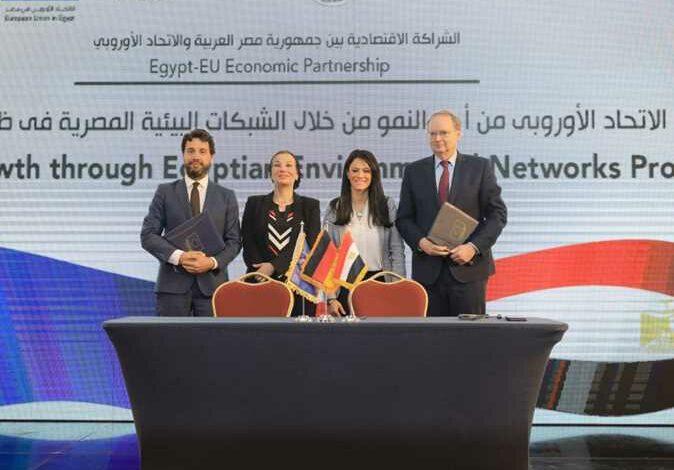BRUSSELS - In a bid to solidify its ties with a critical partner in the Middle East, the European Union (EU) unveiled a substantial financial aid package directed towards Egypt on Thursday. The €1.07 billion ($1.17 billion) allotment will be used to bolster the North African nation's economic development and social initiatives.
The announcement, made in Brussels, comes as the EU seeks to cultivate stronger relationships with countries in the region. Egypt, with its sizable population and strategic location, is considered an essential partner in the EU's efforts to address shared challenges like migration, counter-terrorism, and regional stability.
The EU's financial backing is anticipated to target a multitude of areas within Egypt. A portion of the funds will likely be designated to support the nation's economic reforms, which include subsidy reduction and initiatives to stimulate private sector growth. The aid package is also expected to address social sector needs, encompassing healthcare and education.
The EU and Egypt have collaborated on various projects in the past. The current aid package signifies the EU's ongoing commitment to supporting Egypt's progress and stability. The alliance between the two regions is mutually beneficial, with the EU serving as a significant trade partner for Egypt and Egypt acting as a key supplier of energy to the EU.
While the specific allocation of funds has not yet been disclosed, it is anticipated that the Egyptian government and the EU will work together to determine the most effective way to utilize the financial assistance. The success of the aid package will hinge on its ability to address Egypt's most pressing economic and social needs while fostering long-term sustainable development.
The EU's financial contribution to Egypt is likely to be met with mixed reactions. Proponents will laud the initiative as a demonstration of the EU's commitment to its partners and a source of much-needed support for Egypt's development goals. Critics, on the other hand, may express concerns about the effectiveness of aid programs and potential strings attached to the EU's financial backing.
Regardless of these differing viewpoints, the EU's aid package signifies a significant development in the relationship between the two regions. The coming months will shed light on how these funds are used and the ultimate impact they have on Egypt's trajectory.

